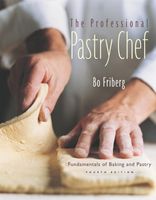Advertisement
Cinnamon
By Bo Friberg
Published 1989
Cinnamon was once a commodity of great value and, together with two other important spices—nutmeg and clove—has been the reason for much human bloodshed over time. The Arabs kept their source of cinnamon a highly guarded secret for many centuries and tried to discourage anyone from finding an alternate source by telling stories of monsters inhabiting countries they suspected of containing the spice. That cinnamon grows wild throughout Ceylon did not come to be known before the fourteenth century. The most widely used cinnamon today is the Cinnamomum cassia variety, which originated in Burma. The other type, Cinnamomum zeylanicum, is native to Ceylon, now called Sri Lanka. Both are derived from the bark of an evergreen laurel tree. The two types of cinnamon are often confused and have been since ancient times. The French word cannelle refers to either variety, as does the Swedish word kanel. Cinnamomum zeylanicum, which is the true cinnamon, is considered by many to have a superior flavor and aroma. However, the majority of the cinnamon sold in the United States is the cassia variety. Either may legally be sold labeled as cinnamon.


